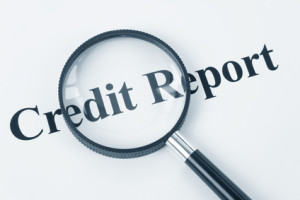There are definitely things in life where less is better. For example, the fewer debts you have, the better off you are financially. On the other hand, there are cases where more is better. And one of them is your credit score. The higher your credit score, the easier it will be for you to get new credit and the lower your interest rates will be.
Credit scores
If you’re not familiar with credit scores they range 300 to 850. Scores of less than 580 would put you in the category of either “poor credit” or “bad credit.” But if you have a credit score higher than 750, you should be able to get any type of credit for which you apply and you should be able to get premium interest rates
How your credit score is computed
There is a formula or algorithm used to compute your credit score. It was developed initially by the company called Fair Isaac Corporation but is now just FICO. No one but FICO knows exactly how this algorithm works but it is known that it has five components as follows.
- On time payments – have you used credit wisely?
- Amount of credit used – the amount of credit you used versus the amount you have available
- Length of your credit history – how long you’ve had credit
- Types of credit used – the different types of credit you use
- Applications for credit – how many times you have applied for credit recently
Six tips
If you want to quickly improve your credit score, here are six tips that can help.
Tip #1: Make your payments on time
One simple way to increase your credit score is to make all of your payments on time. Most experts believe that one single late credit card payment would lower your credit score by as many as 60 points. You could avoid this by setting up automatic payments. If you don’t have enough money available to make your payments when they are due, you should ask your credit card providers to move your due dates to a few days after your payday.
Tip #2: Lower your credit utilization ratio
This is in fact the quickest way to increase your credit score. Just decrease how much credit you’ve used versus your total limits. This is your debt-to-credit ratio, which you can calculate by adding up all of your debts and then dividing them by your total credit limit. For instance, if you had a total credit limit of $12,000 and had charged up $2000 worth, your debt-to-credit ratio would be 16%. Most experts believe that the ideal ratio would be 7% to 10%. There is actually a loophole here. If you pay off your balance before your statement closing date (don’t confuse this with your due date), these charges won’t be reported to the three credit bureaus. Alternately, you could contact your credit card providers and ask for higher credit limits – just make sure you don’t use any of that new credit./
Tip #3: Pay off the card where you balance is closest to its limit
This will help you with your credit utilization ratio. However, don’t cancel that credit card when your balance reaches zero. This would lower your total credit limit, plus it will decrease the “age” of your accounts, which would work against your length of credit history.
Tip #4: Contract a friend or relative
If you get your credit score and find that it has taken a hit recently, contact a friend or relative and ask if you could be added as an authorized user on one of his or her credit cards. This account would then be added to your credit report.
Tip#5: Open some new forms of credit
If you are using only credit cards and have no other form of debt, you might take out an installment loan, a personal loan or a personal line of credit. This would help with your “types of credit used.” Since this accounts for 10% of your credit score, this could translate into a quick boost as the FICO algorithm apparently likes to see that you have and can manage various types of credit sensibly.
Tip #6: Check your credit report at least once a year
It was recently found that 26% percent of all consumers have at least one error on their credit reports. You need to check your credit reports – from the three credit bureaus Experian, TransUnion, and Equifax – at least annually. There could be an error in one of those reports that’s having an adverse effect on your credit score. You can get all three of your credit reports free – once a year – at the website www.annualcreditreport.com – or individually from the three credit bureaus. Many people choose to get their reports one at a time every four months as this is a way to sort of monitor your credit year around. If you do find an error in one of your credit reports, make sure that you dispute it with the appropriate credit bureau. While all three of these bureaus have online forms where you could file your dispute, it’s better to write a letter and send it registered so you can make sure the bureau got it. It will then have 30 days to have the item verified from whichever institution provided the information. In the event that the institution cannot verify the debt or does not respond within 30 days, the credit bureau is required by law to delete it from your credit report. This could cause your credit score to take a very nice jump.
For more details about the five components of your credit score and why your score is so important, be sure to watch this video.








